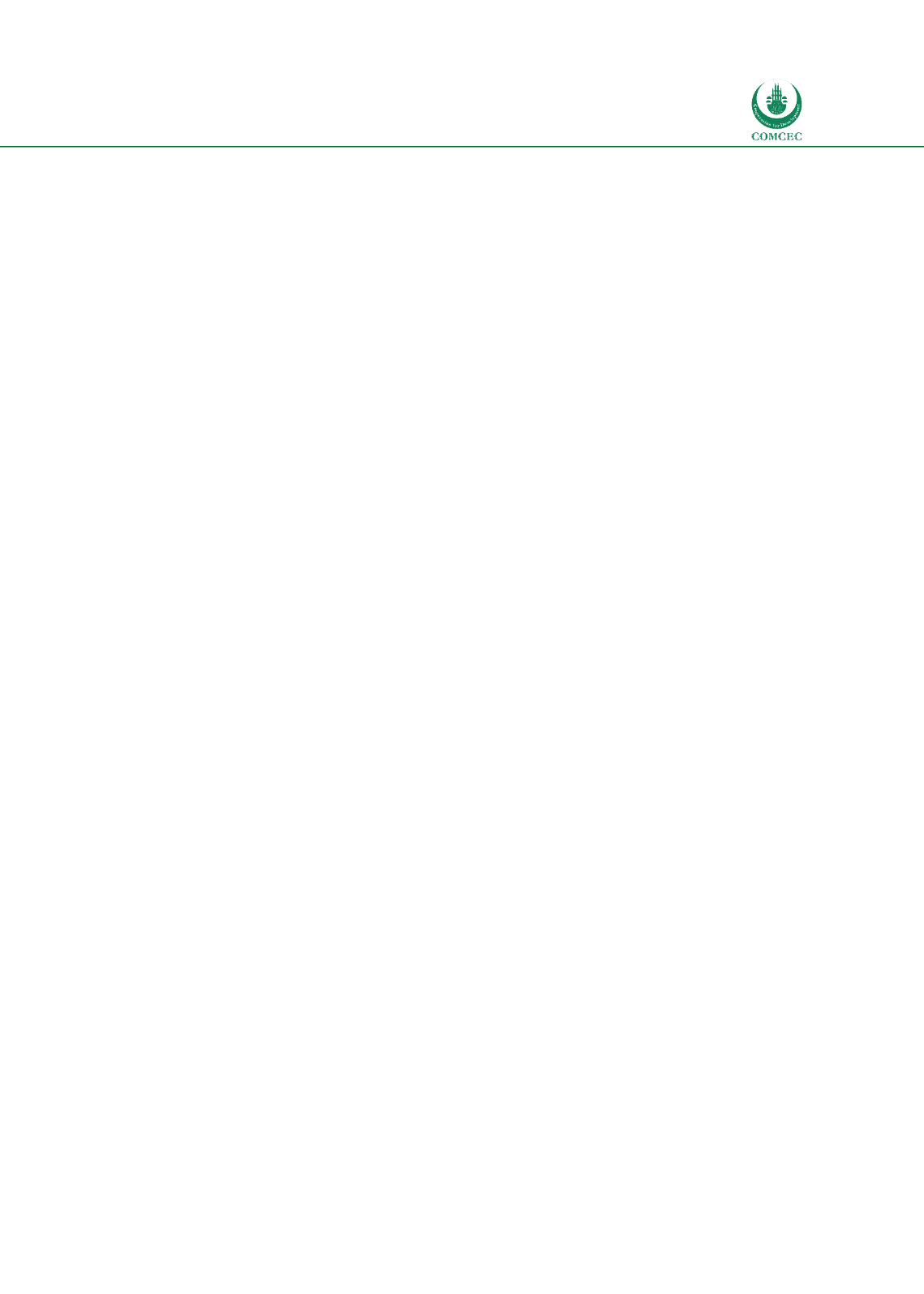

National and Global Islamic Financial Architecture:
Prolems and Possible Solutions for the OIC Member Countries
139
mudarib based on 90% to rabbulmal and 10% to mudarib. Second, the Investment Financing
Window (IFW) uses mudarabah or musharakah whereby CBOS raises tender for banks in
certain periods and the tender awarded to banks based on the percentage of musharakah or
profit percentage of mudarabah (Hassan, 2004).
4.10.5. Information Infrastructure and Transparency
Accounting and Auditing Framework/Transparency and Disclosure
Accounting and auditing principles and regulatory framework for government and
corporations are generally guided by accounting procedures, standards and fiscal
accountability provisions described in the 1977 Financial and Accounting Procedures Law
(and its amendments) and 1995 Financial and Accounting Procedures Regulations 1995. Since
1988, banks and financial institutions have been following the Islamic accounting standards
approved by the Accounting and Auditing Organization for Islamic Institutions (AAOIFI) (IMF
and WB, 2005; WB 2010). Also CBOS in its annual policy program for banks and financial
institutions instructs all banks and financial institutions to comply with IFSB, (CBOS, 2015).
However CBOS allows banks in certain cases to use the International Accounting Standards
(IAS).
CBOS requires banks and financial institutions to be transparent and disclose adequate
information. CBOS circular number (11/98) and also CBOS circular of transparency and
financial disclosure number (1/2002) dated 9/2/2002 (IFF, 2016) have defined the Standard
of the Presentation and Disclosure for IFIs. Sukuk standards are stipulated within the Sukuk
Act of 1995 and are also disclosed in the Sudan Financial Services Company website and Sukuk
and investment certificates pamphlets.
Rating Agencies
The Credit Information & Scoring Agency Act, 2011 (CISA Act, 2011) regulates and governs the
function of exchanging credit Information and tracks a record of customers who have been
granted credit facilities from any bank or financial institution during a period of time. It puts
the rules of the establishment of the Credit Information and Scoring Agency (CISA) and defines
its function and role as the highest administrative authority and credit bureau that control
exchanging customer credit information with banks and financial institutions (CISA Act, 2011).
The Credit Information and Scoring Agency (CISA) set up by CBOS is responsible for
controlling the credit information and rating system that help banks to make good credit
decisions, assess the creditworthiness of customers based on their credit history and track
record, and analyze the credit behavior of customers. It also provides the credit risk scoring
and classification of customers (CBOS 2014). There are no rating agencies providing credit
ratings for securities and sukuk issuance in Sudan. Also, no ratings agencies provides Shariah
ratings of Islamic banks and sukuk structures.
















